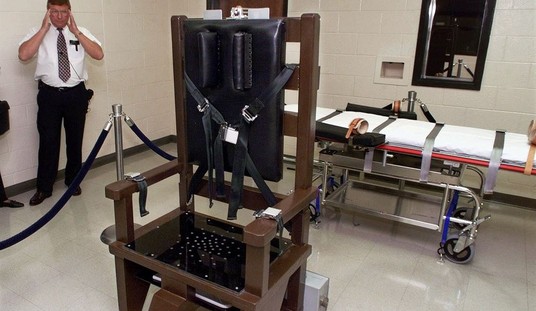This news may surprise some who heard yesterday that the housing market grew 7% in November, but that was the resale market — which has a key difference in measurement. Resales get calculated when the sales close, where new housing sales get calculated when the deal is made:
Sales of new homes plunged unexpectedly last month to the lowest level since April, a sign the housing market recovery will be rocky.
The 11 percent slump from October’s pace shows that consumers are taking their time following an extension of a deadline for first-time buyers to qualify for a tax credit. The incentive was set to expire at the end of November, but Congress pushed back the date to April 30 and expanded the program to include current homeowners who relocate.
“They don’t have to act today,” said David Crowe, chief economist at the National Association of Home Builders, who called the results “pretty awful.”
New home sales data are a better indicator of future real estate than sales of previously occupied homes, but capture a smaller slice of the market. The new home figures tally sales agreements signed in November, while home resale numbers reflect contracts signed over the summer that were completed in November.
In other words, it measures two different sets of times. The resale numbers reflect decisions made anywhere from one to four months earlier by buyers, and the November closing figure reflected the increased optimism during the mid- to-late summer of 2009. That optimism has disappeared, and with it the impetus to buy any of the new inventory in the market.
That may signal an end to the influence of a key Democratic economic stimulus strategy. The tax credit for first-time homebuyers was intended to get inventory lowered, which it accomplished by essentially stealing sales from future quarters as people jumped into the market a little earlier than they may have otherwise. An $8000 tax credit would not have been enough to make a house affordable that wouldn’t have already been affordable to the buyer, at least not in large enough numbers to promote home sales that would have otherwise taken place later.
When new housing starts dropped in October, Congress assumed that the issue was not market saturation but the end of the tax credit. They extended the credit to April 2010 and widened it to existing homeowners who buy new houses. Instead of getting a rush to buy, the market turned sour anyway, demonstrating that the only real impact of the Cash for New Homes program was to move purchasing decisions up a few months, not to create sales that would not have taken place anyway.
Finally, with all of that in mind, it’s amusing to see the AP continue to use the word “unexpectedly” in its economic reporting. This was actually easily predictable.








Join the conversation as a VIP Member